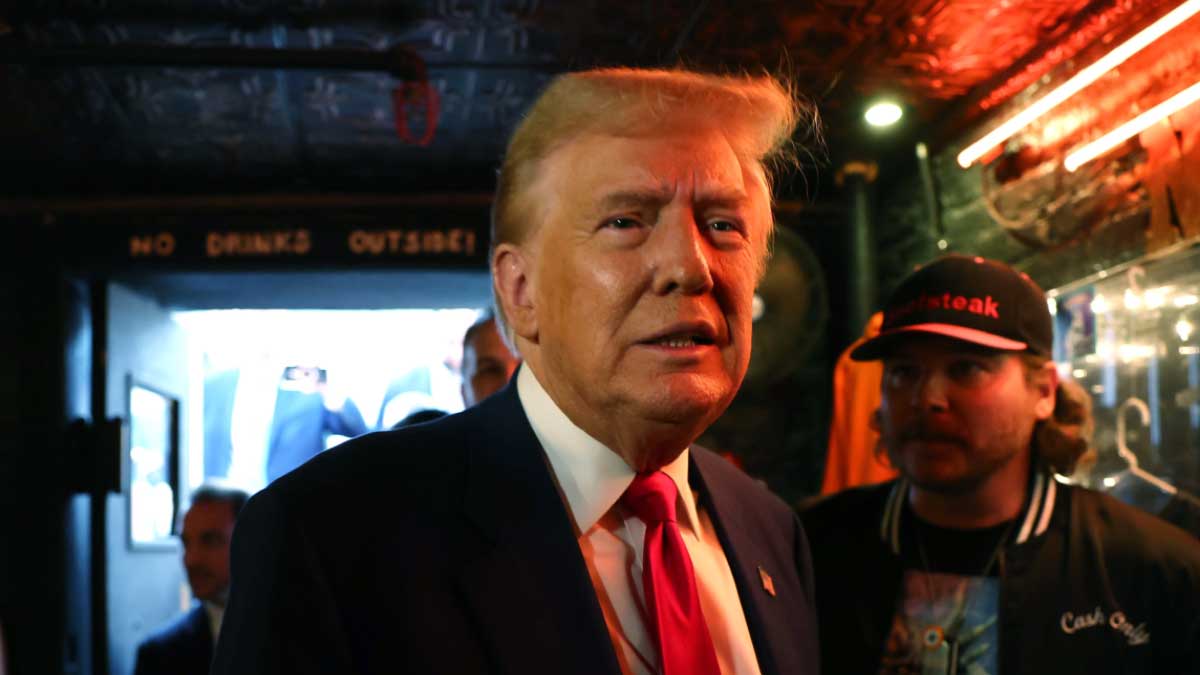- Home
- Billionaires
- Investing Newsletters
- 193CC 1000
- Article Layout 2
- Article Layout 3
- Article Layout 4
- Article Layout 5
- Article Layout 6
- Article Layout 7
- Article Layout 8
- Article Layout 9
- Article Layout 10
- Article Layout 11
- Article Layout 12
- Article Layout 13
- Article Layout 14
- Article Sidebar
- Post Format
- pages
- Archive Layouts
- Post Gallery
- Post Video Background
- Post Review
- Sponsored Post
- Leadership
- Business
- Money
- Small Business
- Innovation
- Shop
Recent Posts
Harris Closes In on Trump in Tight Economic Polls

Americans are closely divided over who they trust to handle the economy as the 2024 presidential election approaches. A recent poll from the Associated Press and NORC Center for Public Affairs Research shows Republican candidate Donald Trump with a slight edge over Democratic candidate Kamala Harris, with 43% of respondents favoring Trump and 41% supporting Harris. This slim margin highlights how contentious the issue of economic leadership has become in the lead-up to the election.
Other polls paint a similar picture of a tight race. A survey conducted by The Financial Times in partnership with the University of Michigan’s Ross School of Business, released this past Sunday, shows Harris holding a small lead over Trump on economic trustworthiness, with 44% of respondents backing her compared to 42% for Trump. In contrast, a poll from The New York Times and Siena College, released Thursday, gives Trump a stronger lead, with 54% of respondents saying they trust him more to handle the economy, while 41% favor Harris. These varying results reflect the changing perceptions of the candidates as they campaign on their economic platforms.
While Harris has made strides in narrowing the gap, especially compared to President Joe Biden, Trump continues to hold an advantage when it comes to voters’ perceptions of their personal financial well-being. In a recent Financial Times survey, 40% of respondents said they believe Trump would improve their financial situations, compared to 35% who thought the same of Harris. This mirrors findings from a CNBC survey conducted last month, in which 40% of respondents said Trump would leave them better off financially, while only 21% expressed the same confidence in Harris. These numbers suggest that despite a close race overall, Trump retains a solid lead in terms of voters’ personal financial concerns.
Trump’s economic platform has emphasized deregulation, particularly in the energy and financial sectors, which he argues will spur growth. He often contrasts the lower inflation rates during his administration with the higher levels seen under Biden’s presidency, positioning his economic policies as a safeguard for American households. Additionally, Trump’s imposition of tariffs on Chinese goods has been a hallmark of his trade strategy, which he claims protects American industries from unfair competition. However, critics of these tariffs argue that they have driven up consumer prices and strained relationships with key trading partners.
Both the Trump and Biden administrations have overseen strong economic performance by most metrics, including low unemployment, robust stock market gains, and steady growth. However, the global economy experienced a significant downturn during the COVID-19 pandemic, complicating comparisons between their tenures. The role of the president in shaping the economy is often overstated, as broader factors like global trade, consumer confidence, and technological shifts play significant roles. Still, public perception of a candidate’s economic leadership can be a decisive factor in elections.
As the election draws nearer, Americans are increasingly focused on how the candidates’ economic policies might impact their personal finances. Polling shows that many voters are concerned about inflation, job security, and economic opportunities, which could sway them towards the candidate they believe will have a more direct and positive impact on their own financial situations. Trump’s emphasis on deregulation and tax cuts may appeal to voters who prioritize business growth and economic stability, while Harris’s economic proposals might focus more on social welfare programs and regulatory oversight.
If Trump were to win the election, analysts predict that sectors such as banking and oil production could see a boost in stock prices due to his deregulatory stance. However, companies heavily reliant on manufacturing in Taiwan or sales in China, such as Nvidia and Apple, might face greater uncertainty given Trump’s tough stance on trade with China. On the other hand, a Harris victory could signal a shift towards greater regulatory oversight and support for sectors that emphasize environmental sustainability and social responsibility.
The tight race between Trump and Harris on economic leadership reflects broader voter anxieties about the future of the U.S. economy. With polls showing a close contest, the outcome of the election may depend on which candidate can more effectively convince voters of their ability to ensure economic growth and stability. As both campaigns continue to unfold, economic leadership will likely remain one of the most critical issues shaping voter decisions.
Recent Posts
Categories
- 193cc Digital Assets2
- 5G1
- Aerospace & Defense46
- AI37
- Arts3
- Banking & Insurance11
- Big Data3
- Billionaires449
- Boats & Planes1
- Business328
- Careers13
- Cars & Bikes76
- CEO Network1
- CFO Network17
- CHRO Network1
- CIO Network1
- Cloud10
- CMO Network18
- Commercial Real Estate7
- Consultant1
- Consumer Tech180
- CxO1
- Cybersecurity68
- Dining1
- Diversity, Equity & Inclusion4
- Education7
- Energy8
- Enterprise Tech29
- Events11
- Fintech1
- Food & Drink2
- Franchises1
- Freelance1
- Future Of Work2
- Games141
- GIG1
- Healthcare78
- Hollywood & Entertainment186
- Houses1
- Innovation42
- Investing2
- Investing Newsletters4
- Leadership65
- Lifestyle11
- Manufacturing1
- Markets20
- Media193
- Mobile phone1
- Money13
- Personal Finance2
- Policy567
- Real Estate1
- Research6
- Retail1
- Retirement1
- Small Business1
- SportsMoney33
- Style & Beauty1
- Success Income1
- Taxes2
- Travel10
- Uncategorized8
- Vices1
- Watches & Jewelry2
- world's billionaires418
Related Articles
Trump Moves $4B Stake in Truth Social Parent, Stock Drops 6%
Donald Trump recently transferred his 57% stake in Trump Media & Technology...
By 193cc Agency CouncilDecember 20, 2024House Rejects Trump-Backed Funding Bill, Shutdown Looms
The U.S. House of Representatives rejected a new government funding bill on...
By 193cc Agency CouncilDecember 20, 2024Trump Named Time’s Person of the Year for Second Time
On Thursday, Time magazine honored Donald Trump as its “Person of the...
By 193cc Agency CouncilDecember 12, 2024Meta Donates $1 Million to Trump’s Inaugural Fund
Meta, the parent company of Facebook and Instagram, has confirmed a $1...
By 193cc Agency CouncilDecember 12, 2024















Leave a comment